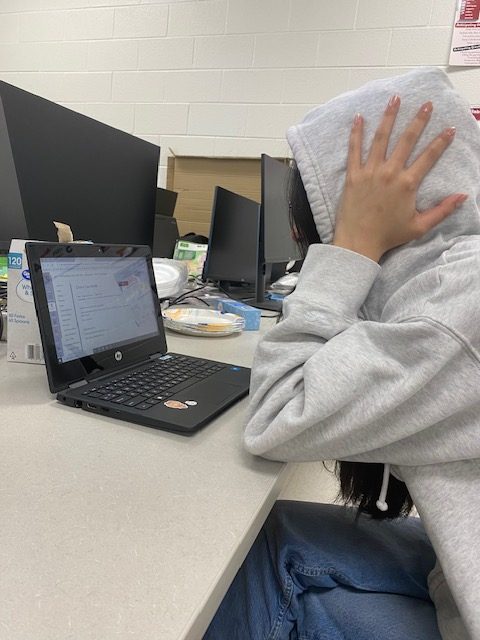On March 21st, Gainesville High School’s junior class took the SAT, but the exam season has only just begun. The end of the 2023-24 school year is fast approaching, and with it are a handful of exams and tests. The junior class will finish off their English SOL testing with the Reading SOL in late April. Along with this, AP exams will begin in May. The underclassmen will have their SOLs in May as well. Finally, at the end of the year, class finals will be conducted.
Because of the established importance of these exams, whether it be towards getting credit for college classes, meeting a graduation requirement, or securing a good final grade in a class, immense amounts of stress can come with exam season.
When you pile the stress of multiple AP exams, SOLs, and finals together, the overall stress level of students increases. Having to manage your time between the school day and outside activities like sports, work, or other outside responsibilities can already be mentally and physically taxing. When you add on the pressure and need to study outside of school to properly prepare for exams, it can create large amounts of stress that can not only mentally overwhelm students but create physical stress as well.
Increased stress levels can cause students to lose sleep, lose leisure time, and even change their eating habits. Stress is not simply a mental issue to be tackled, but it can have physical effects as well if not dealt with properly.
Learning to deal with stress in an efficient and healthy way is an important skill, especially for high school students, to learn. Some effective stress management strategies are taking breaks, doing self-care, and reaching out to others. Learning effective ways to tackle stress is not only helpful during your years as a high school student but can be carried on into higher education and the work force. Stress can be a powerful force, especially during exam season, but learning proper stress management strategies can be very beneficial to students.


























